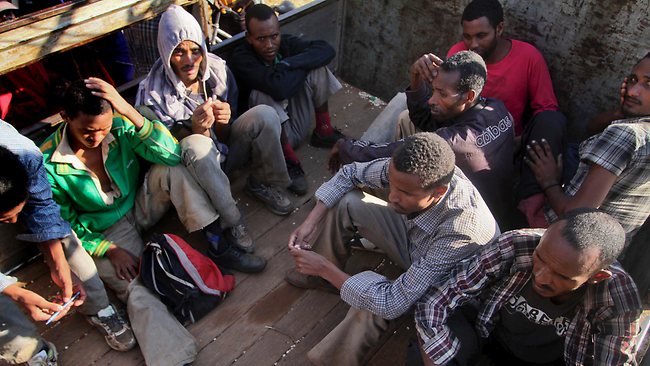JERUSALEM: Israel’s Benjamin Netanyahu has capitulated to heavy pressure from the settler lobby to find ways of legalizing settlement outposts built on private Palestinian land, Haaretz newspaper said on Tuesday.
According to the paper, he has ordered Justice Minister Yaakov Neeman to set up a task force to explore ways of legalizing such construction, contradicting a decision taken earlier this year to raze all such buildings.
But Neeman’s spokesman told AFP the justice ministry had not yet been tasked with handling the issue, which was being dealt with by Netanyahu’s office.
"We are not dealing with this at the moment," said Amatzia Bar-Moshe. "All this business is at the prime minister’s office."
The decision to set up a task force was taken after heavy pressure from the settler lobby and right-wing activists following the demolition in early September of three structures in Migron outpost near the West Bank city of Ramallah.
Further demolitions in another four outposts are expected to take place by the year’s end.
At a meeting of ministers from Netanyahu’s Likud party on Sunday, Culture and Sports Minister Limor Livnat said the imminent demolition of some 160 settler homes was "not reasonable" and called for a team to "examine the issue and offer solutions," her office said.
"Our job is not to be bulldozers and demolish," Livnat told the meeting.
Following her request, Netanyahu ordered cabinet secretary Zvi Hauser to deal with the issue, it said.
The decision to demolish Migron and other outposts built on private Palestinian land was taken in February when Netanyahu and three other ministers met with Attorney General Yehuda Weinstein, Haaretz said.
At the meeting, they agreed to raze a number of outposts built on private land while at the same time working to retroactively legalize any illegal construction in both settlements and outposts built on state land.
According to a timetable submitted to the High Court, the government is to have demolished the Givat Asam outpost by the end of the year, as well as parts of three others: Givat HaRoeh, Ramat Gilad and Bnei Adam.
The issue of construction on private Palestinian land has been the subject of lengthy court battles, one of which saw the Supreme Court order the government in August to raze Migron by the end of March 2012.
Hagit Ofran, who works with the Israeli settlement watchdog Peace Now, said 70 outposts were built either partially or completely on private Palestinian land.
Ofran said she was "surprised" by the decision to set up a task force, which was most likely a move to "buy time" and stave off the upcoming round of outpost demolitions.
"I find it very hard to believe that they can get away with legalizing such a land grab," she said.
"What they might be able to do is buy time. Now they have deadlines because of all the (legal) petitions. If they can postpone this until the elections, they will."
Danny Dayan, head of the Yesha Council of settlers warned that if the demolitions went ahead, it would leave nearly a thousand people homeless.
"The duty of the government, which is in the nationalist camp, is to stop this approaching demolition campaign which will throw us into storm, the end of which no-one can predict," he said in a statement.
Israel considers settlement outposts built in the West Bank without government approval to be illegal, and often sends security personnel to demolish them. They usually consist of little more than a few trailers.
The international community considers all settlements built in the occupied West Bank, including annexed Arab east Jerusalem, to be illegal.

